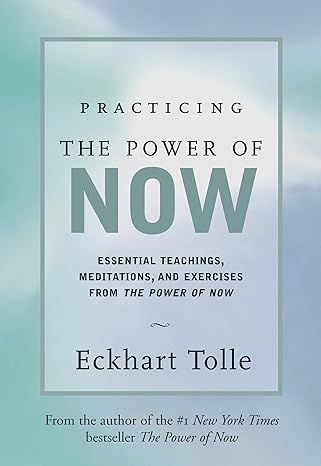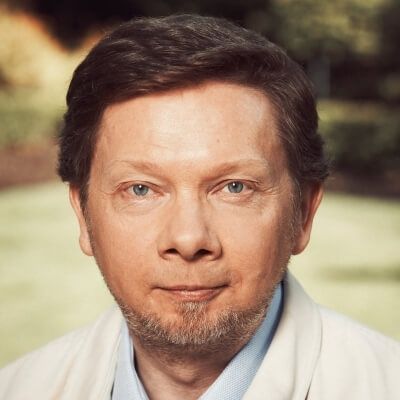Practicing the Power of Now: Essential Teachings, Meditations, And Exercises From the Power of Now (16pt Large Print Edition)
4.7
-
5,712 ratings
New York Times bestselling author Eckhart Tolle — A key to happiness is living in the now
Practice The Power of Now: If you, like many others, have benefited from the transformative experience of reading The Power of Now, you will want to own and read Practicing the Power of Now.
Eckhart Tolle: Eckhart Tolle, a spiritual teacher and author who was born in Germany and educated at the Universities of London and Cambridge, is rapidly emerging as one of the world’s most inspiring spiritual teachers. His views go beyond any particular religion, doctrine, or guru. In The Power of Now and his subsequent book Practicing the Power of Now, Eckhart shares the enlightenment he himself experienced after a profound inner transformation radically changed the course of his life.
Your path to enlightenment: Practicing the Power of Now extracts the essence from Eckhart’s teachings in his New York Times bestseller, The Power of Now (translated into 33 languages). Practicing the Power of Now shows us how to free ourselves from “enslavement to the mind.” The aim is to be able to enter into and sustain an awakened state of consciousness throughout everyday life. Through meditations and simple techniques, Eckhart shows us how to quiet our thoughts, see the world in the present moment, and find a path to “a life of grace, ease, and lightness.”
The next step in human evolution: Eckhart’s profound yet simple teachings have already helped countless people throughout the world find inner peace and greater fulfillment in their lives. At the core of the teachings lies the transformation of consciousness, a spiritual awakening that he sees as the next step in human evolution. An essential aspect of this awakening involves transcending our ego-based state of consciousness. This is a prerequisite not only for personal happiness but also for the ending of violence on our planet.
Readers of other transformational self-help books such as The Four Agreements, The Miracle Morning, Braving the Wilderness, and The Book of Joy will want to read Practicing the Power of Now.
Read more
Kindle
$9.75
Available instantly
Audiobook
$0.00
with membership trial
Hardcover
$10.26
Paperback
$25.99
Ships from
Amazon.com
Payment
Secure transaction
ISBN-10
036930425X
ISBN-13
978-0369304254
Print length
172 pages
Language
English
Publisher
ReadHowYouWant
Publication date
April 02, 2009
Dimensions
6.14 x 0.37 x 9.21 inches
Item weight
8.8 ounces
Popular highlights in this book
REALIZE DEEPLY THAT THE PRESENT MOMENT is all you ever have. Make the Now the primary focus of your life.
Highlighted by 2,021 Kindle readers
The single most vital step on your journey toward enlightenment is this: Learn to disidentify from your mind. Every time you create a gap in the stream of mind, the light of your consciousness grows stronger.
Highlighted by 1,881 Kindle readers
THE BEGINNING OF FREEDOM is the realization that you are not the possessing entity — the thinker. Knowing this enables you to observe the entity. The moment you start watching the thinker, a higher level of consciousness becomes activated.
Highlighted by 1,794 Kindle readers
Product details
ASIN :
B00149ZWT0
File size :
1788 KB
Text-to-speech :
Enabled
Screen reader :
Supported
Enhanced typesetting :
Enabled
X-Ray :
Enabled
Word wise :
Enabled
Editorial reviews
Amazon.com Review
This manual-style book instantly dives into Eckhart Tolle's principles of "living in the moment," which could be a jarring experience for readers who haven't read his preceding book, The Power of Now. For the initiated, though, this makes an excellent companion guide--rich in exercises and meditations to help readers get out of their minds so they can live more peacefully in their bodies. Sometimes it's hard to fathom what on earth Tolle is talking about: "To regain awareness of Being and to abide in that state of 'feeling-realization' is enlightenment." Be patient. All concepts will be revealed (or at least more carefully explained). Ultimately, Tolle leads readers into a new form of thinking (or actually not thinking) that erases the consuming habits of waiting, worrying, and being in fear. The first step is ending the "delusion of time." He asks, "Are you always trying to get somewhere other than where you are? ... Is most of your doing just a means to an end?" If so, Tolle has a book full of advice for you. As simplistic as this may sound, Tolle's work has spiritual merit and depth, especially for frantic Westerners who find their lives diminished by packed schedules and busy-ness. --Gail Hudson
About the Author
Spiritual teacher and author Eckhart Tolle was born in Germany and educated at the Universities of London and Cambridge. At the age of twenty-nine a profound inner transformation radically changed the course of his life. The next few years were devoted to understanding, integrating and deepening that transformation, which marked the beginning of an intense inward journey. Later, he began to work in London with individuals and small groups as a counselor and spiritual teacher. Since 1995 he has lived in Vancouver, Canada.Eckhart Tolle is the author of the New York Times bestsellers The Power of Now (translated into 33 languages) and A New Earth, which are widely regarded as two of the most influential spiritual books of our time. In 2008, A New Earth became the first spiritual book to be selected for Oprah's Book Club as well as the subject of a ten-week online workshop co-taught by Eckhart and Oprah.Eckhart's profound yet simple teachings have helped countless people throughout the world find inner peace and greater fulfillment in their lives. At the core of the teachings lies the transformation of consciousness, a spiritual awakening that he sees as the next step in human evolution. An essential aspect of this awakening consists in transcending our ego-based state of consciousness. This is a prerequisite not only for personal happiness but also for the ending of violent conflict endemic on our planet.Eckhart is a sought-after public speaker and teaches and travels extensively throughout the world. Many of his talks, intensives and retreats are published on CD and DVD. Most of the teachings are given in English, but occasionally Eckhart also gives talks in German and Spanish. In addition to The Power of Now and A New Earth, Eckhart has written a book designed for meditative reading entitled Stillness Speaks. A book consisting of selections from The Power of Now is also available, entitled Practicing the Power of Now.
Read more
Sample
CHAPTER 1
BEING and ENLIGHTENMENT
There is an eternal, ever-present One Life beyond the myriad forms of life that are subject to birth and death. Many people use the word God to describe it; I often call it Being. The word Being explains nothing, but nor does God. Being, however, has the advantage that it is an open concept. It does not reduce the infinite invisible to a finite entity. It is impossible to form a mental image of it. Nobody can claim exclusive possession of Being. It is your very presence, and it is immediately accessible to you as the feeling of your own presence. So it is only a small step from the word Being to the experience of Being.
BEING IS NOT ONLY BEYOND BUT ALSO DEEP WITHIN every form as its innermost invisible and indestructible essence. This means that it is accessible to you now as your own deepest self, your true nature. But don't seek to grasp it with your mind. Don't try to understand it.
You can know it only when the mind is still. When you are present, when your attention is fully and intensely in the Now, Being can be felt, but it can never be understood mentally.
To regain awareness of Being and to abide in that state of "feeling-realization" is enlightenment.
The word enlightenment conjures up the idea of some superhuman accomplishment, and the ego likes to keep it that way, but it is simply your natural state of felt oneness with Being. It is a state of connectedness with something immeasurable and indestructible, something that, almost paradoxically, is essentially you and yet is much greater than you. It is finding your true nature beyond name and form.
The inability to feel this connectedness gives rise to the illusion of separation, from yourself and from the world around you. You then perceive yourself, consciously or unconsciously, as an isolated fragment. Fear arises, and conflicts within and without become the norm.
The greatest obstacle to experiencing the reality of your connectedness is identification with your mind, which causes thought to become compulsive. Not to be able to stop thinking is a dreadful affliction, but we don't realize this because almost everybody is suffering from it, so it is considered normal. This incessant mental noise prevents you from finding that realm of inner stillness that is inseparable from Being. It also creates a false mind-made self that casts a shadow of fear and suffering.
Identification with your mind creates an opaque screen of concepts, labels, images, words, judgments, and definitions that blocks all true relationship. It comes between you and yourself, between you and your fellow man and woman, between you and nature, between you and God. It is this screen of thought that creates the illusion of separateness, the illusion that there is you and a totally separate "other." You then forget the essential fact that, underneath the level of physical appearances and separate forms, you are one with all that is.
The mind is a superb instrument if used rightly. Used wrongly, however, it becomes very destructive. To put it more accurately, it is not so much that you use your mind wrongly — you usually don't use it at all. It uses you. This is the disease. You believe that you are your mind. This is the delusion. The instrument has taken you over.
It's almost as if you were possessed without knowing it, and so you take the possessing entity to be yourself.
THE BEGINNING OF FREEDOM is the realization that you are not the possessing entity — the thinker. Knowing this enables you to observe the entity. The moment you start watching the thinker, a higher level of consciousness becomes activated.
You then begin to realize that there is a vast realm of intelligence beyond thought, that thought is only a tiny aspect of that intelligence. You also realize that all the things that truly matter — beauty, love, creativity, joy, inner peace — arise from beyond the mind.
You begin to awaken.
FREEING YOURSELF FROM YOUR MIND
The good news is that you can free yourself from your mind. This is the only true liberation. You can take the first step right now.
START LISTENING TO THE VOICE IN YOUR HEAD as often as you can. Pay particular attention to any repetitive thought patterns, those old audiotapes that have been playing in your head perhaps for many years.
This is what I mean by "watching the thinker," which is another way of saying: Listen to the voice in your head, be there as the witnessing presence.
When you listen to that voice, listen to it impartially. That is to say, do not judge. Do not judge or condemn what you hear, for doing so would mean that the same voice has come in again through the back door. You'll soon realize: There is the voice, and here I am listening to it, watching it. This I am realization, this sense of your own presence, is not a thought. It arises from beyond the mind.
So when you listen to a thought, you are aware not only of the thought but also of yourself as the witness of the thought. A new dimension of consciousness has come in.
AS YOU LISTEN TO THE THOUGHT, you feel a conscious presence — your deeper self — behind or underneath the thought, as it were. The thought then loses its power over you and quickly subsides, because you are no longer energizing the mind through identification with it. This is the beginning of the end of involuntary and compulsive thinking.
When a thought subsides, you experience a discontinuity in the mental stream — a gap of "no-mind." At first, the gaps will be short, a few seconds perhaps, but gradually they will become longer. When these gaps occur, you feel a certain stillness and peace inside you. This is the beginning of your natural state of felt oneness with Being, which is usually obscured by the mind.
With practice, the sense of stillness and peace will deepen. In fact, there is no end to its depth. You will also feel a subtle emanation of joy arising from deep within: the joy of Being.
In this state of inner connectedness, you are much more alert, more awake than in the mind-identified state. You are fully present. It also raises the vibrational frequency of the energy field that gives life to the physical body.
As you go more deeply into this realm of no-mind, as it is sometimes called in the East, you realize the state of pure consciousness. In that state, you feel your own presence with such intensity and such joy that all thinking, all emotions, your physical body, as well as the whole external world become relatively insignificant in comparison to it. And yet this is not a selfish but a selfless state. It takes you beyond what you previously thought of as "your self." That presence is essentially you and at the same time inconceivably greater than you.
INSTEAD OF "WATCHING THE THINKER," you can also create a gap in the mind stream simply by directing the focus of your attention into the Now. Just become intensely conscious of the present moment.
This is a deeply satisfying thing to do. In this way, you draw consciousness away from mind activity and create a gap of no-mind in which you are highly alert and aware but not thinking. This is the essence of meditation.
IN YOUR EVERYDAY LIFE, you can practice this by taking any routine activity that normally is only a means to an end and giving it your fullest attention, so that it becomes an end in itself. For example, every time you walk up and down the stairs in your house or place of work, pay close attention to every step, every movement, even your breathing. Be totally present.
Or when you wash your hands, pay attention to all the sense perceptions associated with the activity: the sound and feel of the water, the movement of your hands, the scent of the soap, and so on.
Or when you get into your car, after you close the door, pause for a few seconds and observe the flow of your breath. Become aware of a silent but powerful sense of presence.
There is one certain criterion by which you can measure your success in this practice: the degree of peace that you feel within.
The single most vital step on your journey toward enlightenment is this: Learn to disidentify from your mind. Every time you create a gap in the stream of mind, the light of your consciousness grows stronger.
One day you may catch yourself smiling at the voice in your head, as you would smile at the antics of a child. This means that you no longer take the content of your mind all that seriously, as your sense of self does not depend on it.
ENLIGHTENMENT: RISING ABOVE THOUGHT
As you grow up, you form a mental image of who you are, based on your personal and cultural conditioning. We may call this phantom self the ego. It consists of mind activity and can only be kept going through constant thinking. The term ego means different things to different people, but when I use it here it means a false self, created by unconscious identification with the mind.
To the ego, the present moment hardly exists. Only past and future are considered important. This total reversal of the truth accounts for the fact that in the ego mode the mind is so dysfunctional. It is always concerned with keeping the past alive, because without it — who are you? It constantly projects itself into the future to ensure its continued survival and to seek some kind of release or fulfillment there. It says: "One day, when this, that, or the other happens, I am going to be okay, happy, at peace."
Even when the ego seems to be concerned with the present, it is not the present that it sees: It misperceives it completely because it looks at it through the eyes of the past. Or it reduces the present to a means to an end, an end that always lies in the mind-projected future. Observe your mind and you'll see that this is how it works.
The present moment holds the key to liberation. But you cannot find the present moment as long as you are your mind.
Enlightenment means rising above thought. In the enlightened state, you still use your thinking mind when needed, but in a much more focused and effective way than before. You use it mostly for practical purposes, but you are free of the involuntary internal dialogue, and there is inner stillness.
When you do use your mind, and particularly when a creative solution is needed, you oscillate every few minutes or so between thought and stillness, between mind and no-mind. No-mind is consciousness without thought. Only in that way is it possible to think creatively, because only in that way does thought have any real power. Thought alone, when it is no longer connected with the much vaster realm of consciousness quickly becomes barren, insane, destructive.
EMOTION: THE BODY'S REACTION TO YOUR MIND
Mind, in the way I use the word, is not just thought. It includes your emotions as well as all unconscious mental-emotional reactive patterns. Emotion arises at the place where mind and body meet. It is the body's reaction to your mind — or you might say a reflection of your mind in the body.
The more you are identified with your thinking, your likes and dislikes, judgments and interpretations, which is to say the less present you are as the watching consciousness, the stronger the emotional energy charge will be, whether you are aware of it or not. If you cannot feel your emotions, if you are cut off from them, you will eventually experience them on a purely physical level, as a physical problem or symptom.
IF YOU HAVE DIFFICULTY FEELING YOUR EMOTIONS, start by focusing attention on the inner energy field of your body. Feel the body from within. This will also put you in touch with your emotions.
If you really want to know your mind, the body will always give you a truthful reflection, so look at the emotion, or rather feel it in your body. If there is an apparent conflict between them, the thought will be the lie, the emotion will be the truth. Not the ultimate truth of who you are, but the relative truth of your state of mind at that time.
You may not yet be able to bring your unconscious mind activity into awareness as thoughts, but it will always be reflected in the body as an emotion, and of this you can become aware.
To watch an emotion in this way is basically the same as listening to or watching a thought, which I described earlier. The only difference is that, while a thought is in your head, an emotion has a strong physical component and so is primarily felt in the body. You can then allow the emotion to be there without being controlled by it. You no longer are the emotion; you are the watcher, the observing presence.
If you practice this, all that is unconscious in you will be brought into the light of consciousness.
MAKE IT A HABIT TO ASK YOURSELF: What's going on inside me at this moment? That question will point you in the right direction. But don't analyze, just watch. Focus your attention within. Feel the energy of the emotion.
If there is no emotion present, take your attention more deeply into the inner energy field of your body. It is the doorway into Being.
CHAPTER 2
THE ORIGIN OF FEAR
The psychological condition of fear is divorced from any concrete and true immediate danger. It comes in many forms: unease, worry, anxiety, nervousness, tension, dread, phobia, and so on. This kind of psychological fear is always of something that might happen, not of something that is happening now. You are in the here and now, while your mind is in the future. This creates an anxiety gap. And if you are identified with your mind and have lost touch with the power and simplicity of the Now, that anxiety gap will be your constant companion. You can always cope with the present moment, but you cannot cope with something that is only a mind projection — you cannot cope with the future.
Moreover, as long as you are identified with your mind, the ego runs your life. Because of its phantom nature, and despite elaborate defense mechanisms, the ego is very vulnerable and insecure, and it sees itself as constantly under threat. This, by the way, is the case even if the ego is outwardly very confident. Now remember that an emotion is the body's reaction to your mind. What message is the body receiving continuously from the ego, the false, mind-made self? Danger, I am under threat. And what is the emotion generated by this continuous message? Fear, of course.
Fear seems to have many causes. Fear of loss, fear of failure, fear of being hurt, and so on, but ultimately all fear is the ego's fear of death, of annihilation. To the ego, death is always just around the corner. In this mind-identified state, fear of death affects every aspect of your life.
For example, even such a seemingly trivial and "normal" thing as the compulsive need to be right in an argument and make the other person wrong — defending the mental position with which you have identified — is due to the fear of death. If you identify with a mental position, then if you are wrong, your mind-based sense of self is seriously threatened with annihilation. So you as the ego cannot afford to be wrong. To be wrong is to die. Wars have been fought over this, and countless relationships have broken down.
Once you have disidentified from your mind, whether you are right or wrong makes no difference to your sense of self at all, so the forcefully compulsive and deeply unconscious need to be right, which is a form of violence, will no longer be there. You can state clearly and firmly how you feel or what you think, but there will be no aggressiveness or defensiveness about it. Your sense of self is then derived from a deeper and truer place within yourself, not from the mind.
WATCH OUT FOR ANY KIND OF DEFENSIVENESS within yourself. What are you defending? An illusory identity, an image in your mind, a fictitious entity. By making this pattern conscious, by witnessing it, you disidentify from it. In the light of your consciousness, the unconscious pattern will then quickly dissolve.
This is the end of all arguments and power games, which are so corrosive to relationships. Power over others is weakness disguised as strength. True power is within, and it is available to you now.
The mind always seeks to deny the Now and to escape from it. In other words, the more you are identified with your mind, the more you suffer. Or you may put it like this: The more you are able to honor and accept the Now, the more you are free of pain, of suffering — and free of the egoic mind.
If you no longer want to create pain for yourself and others, if you no longer want to add to the residue of past pain that still lives on in you, then don't create any more time, or at least no more than is necessary to deal with the practical aspects of your life. How to stop creating time?
REALIZE DEEPLY THAT THE PRESENT MOMENT is all you ever have. Make the Now the primary focus of your life.
Whereas before you dwelt in time and paid brief visits to the Now, have your dwelling place in the Now and pay brief visits to past and future when required to deal with the practical aspects of your life situation.
Always say "yes" to the present moment.
Read more
About the authors
Eckhart Tolle
Eckhart Tolle was born in Germany. When he was 29, a profound spiritual transformation virtually dissolved his old identity and radically changed the course of his life. He is now a counsellor and spiritual teacher, and the author of The Power of Now, Practising the Power of Now and Stillness Speaks. He lives in Vancouver.
Reviews
Customer reviews
4.7 out of 5
5,712 global ratings
VillaPriscilla
5
QUESTIONS ANSWERED
Reviewed in the United States on January 4, 2013
Verified Purchase
I have added Eckhart Tolle to the top of the list of my favorite Metaphysical writers. He has expressed in the simplest terms how to Be Here NOW, how to experience the flow of God energy. As a truth seeker for all of my adult life I have not found a writer who could offer a simple way to experience the Power of NOW. I want to be clear that I have not had the full experience, and I understand why and what I have to do, but I have had vivid dreams, and one revelation, which has made it clear to me how powerful his writing is for me. In my 20's I read J. Krishnamurti and couldn't understand one thing he said. But I was inextricably linked to him and his writings. I carried his books with me for years and I would open one up every 3 or 4 years and see if I could understand what he was saying....nope! I didn't realize that he was my introduction to Eastern Philosophy. It took me many years of life experience and pain to understand what JK meant by "Desire is the root of all suffering" when the opposite seemed more reasonable to me!
Throughout this book I hear the messages of JK expressed in much more understandable terms. I am enthralled to have ET bringing back all of my readings of yesteryears in a simplified way. It must be my time to evolve a bit more. I first heard ET on the Oprah Super Soul Sunday show. I was so taken by his message that on each commercial I went to Amazon and bought another one of his books! I bought them ALL and read them ALL in order of publication. The Power of Now may be more confusing for someone not familiar with metaphysics. If that is the case I would say A New Earth is easier to follow and understand. It was an Oprah choice and she did a 21 day workshop on air with him a couple of years ago which I missed.
I love this man and I love this book.
Read more
9 people found this helpful
Tom L
5
Very profound and fascinating read
Reviewed in the United States on March 17, 2014
Verified Purchase
I found this book to be better than 'The Power of Now'. It's true that much of the material in this book can be found in the other, but I found this book to be more concise and easier to comprehend than the original. It seems like the really confusing stuff that was found in 'The Power of Now' was not included in this book. This book seemed to just have the essential lessons of the original, which I liked and understood. It didn't have any of the more complicated and perhaps subjective stuff that the latter part of the original seemed to be filled with. That being said, if you haven't read either one, then start with 'The Power of Now', because it seems apparent that 'Practicing the Power of Now' assumes the reader has read the first and/or is already familiar with the basic concepts of his teachings.
I truly believe that this guy has reached enlightenment and wrote this book from and enlightened state. Many of the things he says are so profound that I just re-read them again and again in utter fascination. He points out such simple truths that so many of us spend a lifetime overlooking. I find that when I'm not reading this, I'm thinking about it and ways to practice it in my life. Everything he said rang so true. I really can't find fault or criticism with anything he claims to be true, because deep down, I know it's true. I had just never heard anyone articulate it before. This guy has the answers to life. Now I just need to work on turning believing into experiencing. I'm very new to these Buddhist-like teachings, but Mr. Tolle has really opened my eyes to the power of it. The power of Now, that is.
Also, if you're a Christian, as I am, and seem a bit skeptical by this type of teaching, I can assure you that nothing he says directly contradicts Christianity. Some terms he is reluctant to use, such as God, because of misuses of that term or idea, so he steps around that, so as not to offend certain readers. But I don't have a problem with that at all. Despite his vagueness in describing the Source of eternal love and peace and joy out there that we are all connected with, as a Christian it is easy for me to decide what he is talking about, and all his teachings have an overall message of love and peace and surrender; very complimentary to Christian ideals. If anything, this book strengthened my faith and has given me a better understanding of meditative prayer.
Edit 4/27/19 - Even though Tolle does not subscribe to Christianity, he occasionally tries to use quotes from Jesus as supporting evidence of his teachings. I’m not sure why he does this. I can only guess that he is trying to connect with the Christian readers. Unfortunately, he seems to misinterpret Jesus in most cases, which hurts his cause. He clearly doesn’t recognize Jesus Christ as the Son of God, or of God Incarnate. I think he simply sees Jesus as an enlightened individual and so he tries to point out the similarities between what he is saying and what Jesus said, even though, in most cases, he is way off base on the message Jesus was delivering in the given case. Sadly, this has caused most of my Christian friends to immediately dismiss all the rest of his teaching as blasphemy or nonsense. If you can overlook this discrepancy though, you will still find this to be a very rewarding book. It’s not a religious book, it’s a philosophical book, which I still find to be the best of it’s kind.
Read more
69 people found this helpful
Mimi
5
This book is a life changer - get it.
Reviewed in the United States on August 12, 2023
Verified Purchase
I've never even read the original "Power of Now." I always come back to this one. This is probably the 12th copy I've bought because I always give them away. I truly believe everyone could benefit from this book. Perfect for folks who can't seem to click with common forms of meditating.
6 people found this helpful
Top Eckhart Tolle titles
View all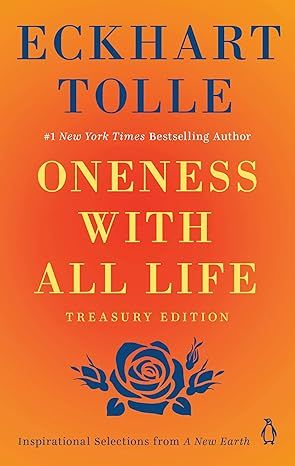
Oneness With All Life: Awaken to a life of purpose and presence with the Number One bestselling spiritual author
4.8
-
2,119
$9.99
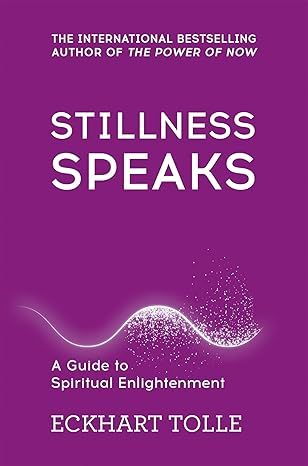
Stillness Speaks : Whispers of Now
4.7
-
6,345
$1.78
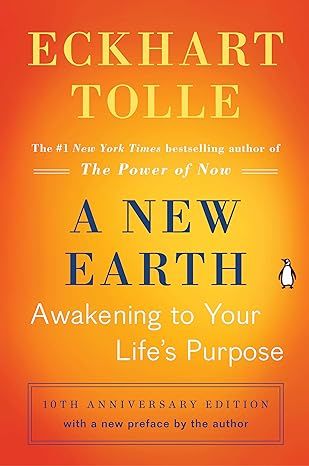
A New Earth: Awakening to Your Life's Purpose (Oprah's Book Club, Selection 61)
4.7
-
18,620
$1.62
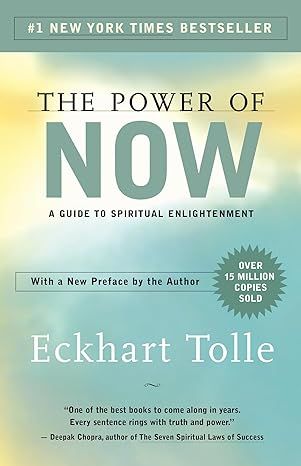
The Power of Now: A Guide to Spiritual Enlightenment
4.7
-
61,710
$1.77
Similar Books
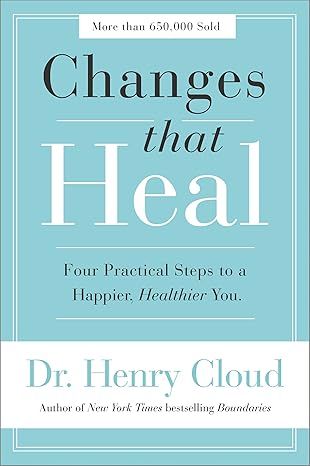
Changes That Heal: Four Practical Steps to a Happier, Healthier You
4.8
-
2,937
$0.99
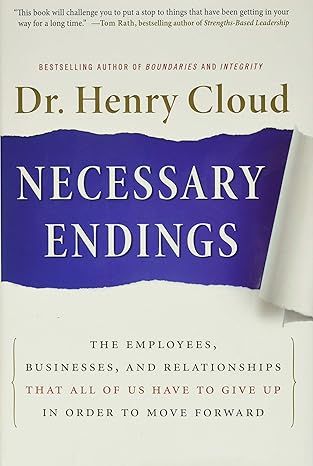
Necessary Endings: The Employees, Businesses, and Relationships That All of Us Have to Give Up in Order to Move Forward
4.7
-
2,598
$0.99
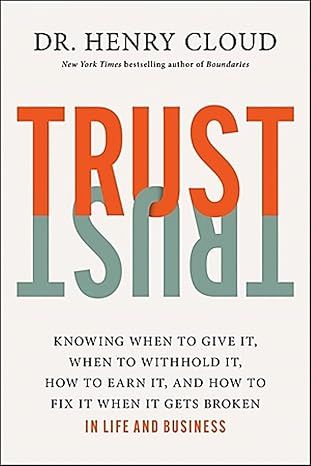
Trust: Knowing When to Give It, When to Withhold It, How to Earn It, and How to Fix It When It Gets Broken
4.8
-
626
$0.99
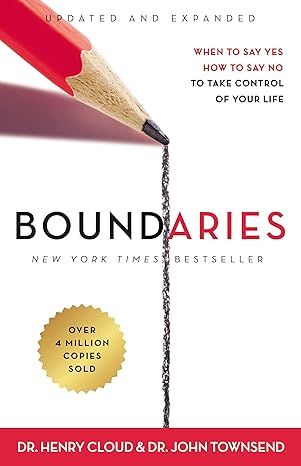
Boundaries Updated and Expanded Edition: When to Say Yes, How to Say No To Take Control of Your Life
4.7
-
23,877
$0.99
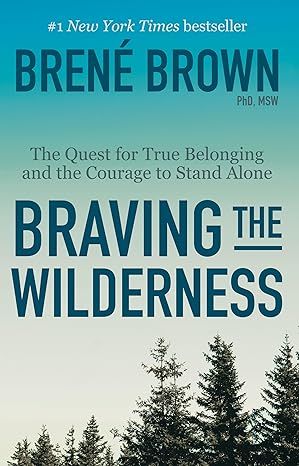
Braving the Wilderness: The Quest for True Belonging and the Courage to Stand Alone
4.6
-
14,403
$0.99
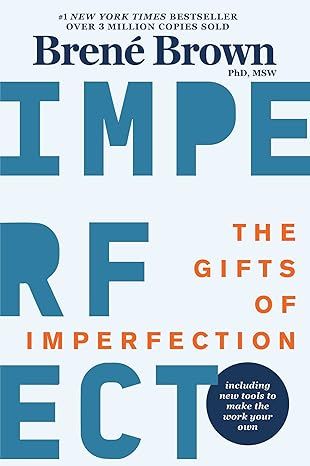
The Gifts of Imperfection: 10th Anniversary Edition: Features a new foreword and brand-new tools
4.7
-
42,318
$0.99
Best sellers
View all
The Tuscan Child
4.2
-
100,022
$8.39

The Thursday Murder Club: A Novel (A Thursday Murder Club Mystery)
4.3
-
155,575
$6.33

Sapiens: A Brief History of Humankind
4.6
-
140,302
$13.49

The Butterfly Garden (The Collector, 1)
4.3
-
88,556
$9.59

Things We Hide from the Light (Knockemout Series, 2)
4.4
-
94,890
$11.66

The Last Thing He Told Me: A Novel
4.3
-
154,085
$2.99

The Perfect Marriage: A Completely Gripping Psychological Suspense
4.3
-
143,196
$9.47

The Coworker
4.1
-
80,003
$13.48

First Lie Wins: A Novel (Random House Large Print)
4.3
-
54,062
$14.99

Mile High (Windy City Series Book 1)
4.4
-
59,745
$16.19

Layla
4.2
-
107,613
$8.99

The Locked Door
4.4
-
94,673
$8.53
